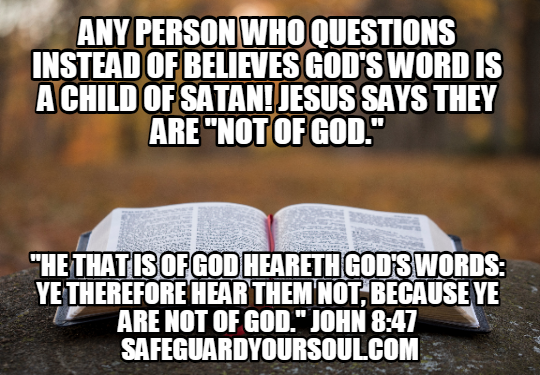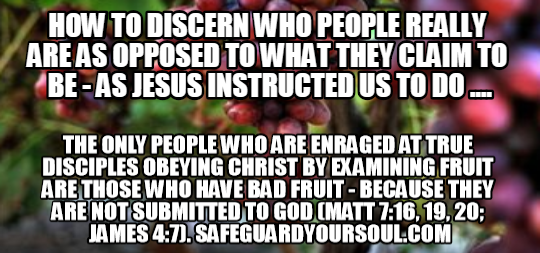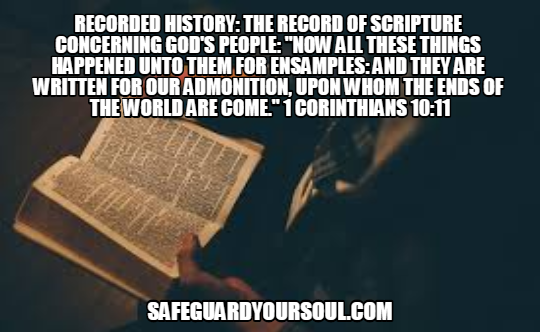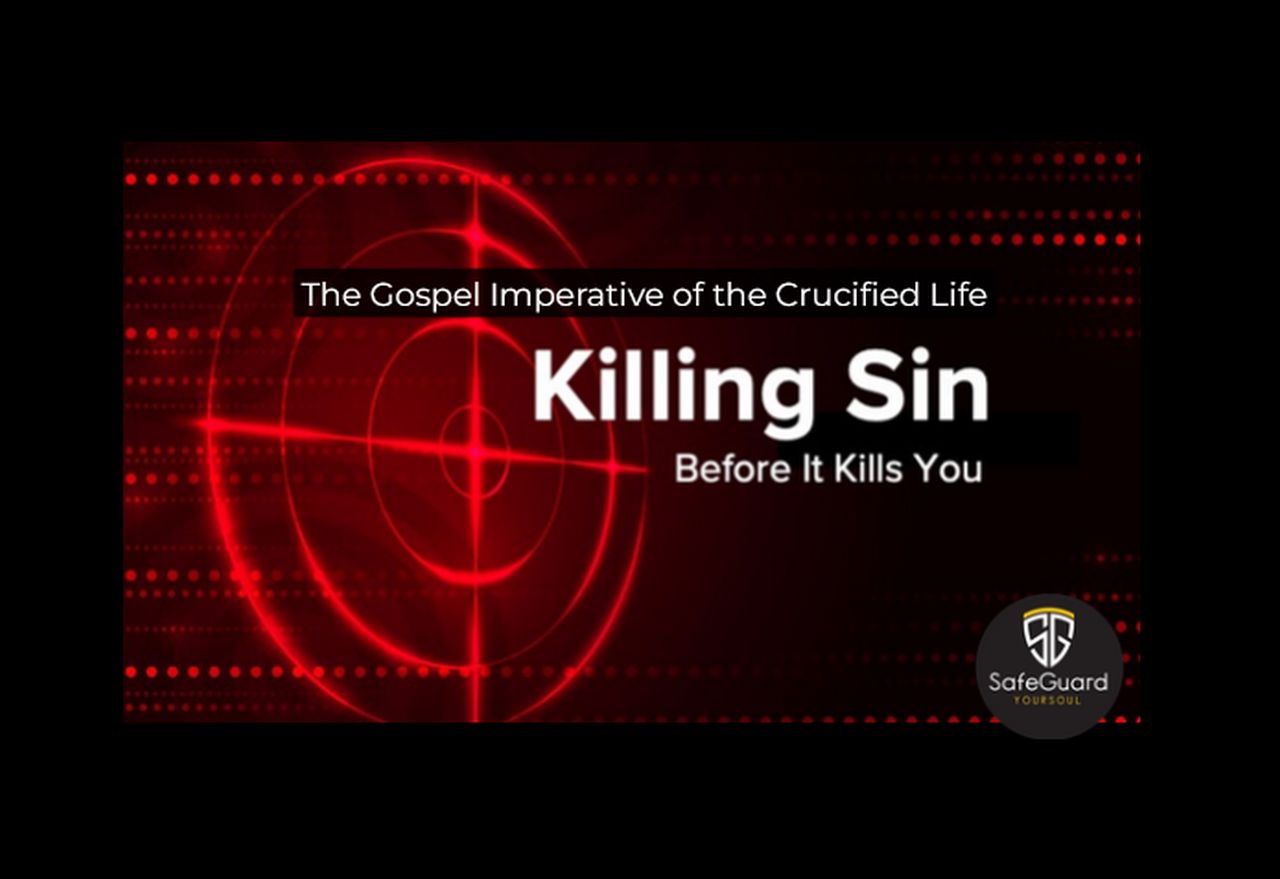How To Apprehend the Truth About Eternal Security – Every Time
“Study to shew thyself approved unto God, a workman that needeth not to be ashamed, rightly dividing the word of truth.” 2 Timothy 2:15
In this important post we are going to visit a few Bible verses and doctrines as examples of how we have the opportunity to either rightly divide or to have a distorted understanding in the things of Christ’s kingdom. The apprehension of truth is all-important to the LORD (Prov. 2:1-22).
Regrettably it is rare to find someone who has and is taking time to truly, personally study God’s Word for themselves and actually knows WHY they believe WHAT they believe. They are sound in the faith, grounded in biblical truth. As is evidenced by the dialogues today, so very many insist they know the truth when they’ve never personally, thoroughly, honestly studied God’s Word for themselves (2 Timothy 2:15). All they’ve done is follow false teachers and are now regurgitating those lies on others. They are false teachers and hell bound if they don’t repent (2 Peter 2:1-3).
It’s very dangerous to go to seed on a certain truth to the exclusion of the whole of Scripture. Such always results in error.
Twisting Scripture, truth is fueled by the enemy of souls who is the first on record to do so as he misled the man and the woman in the Garden, causing their fall (Genesis 3). Did not Satan also tempted Christ using Scripture out of context? (Luke 4)
“As also in all his epistles, speaking in them of these things; in which are some things hard to be understood, which they that are unlearned and unstable wrest (pervert, twist, corrupt), as they do also the other scriptures, unto their own destruction.” 2 Peter 3:16
“For we are not as many, which corrupt the word of God: but as of sincerity, but as of God, in the sight of God speak we in Christ.” 2 Corinthians 2:17
Here’s the Greek word and definition for the word “corrupt” used here in the above verse of Scripture:
kapēleuō
kap-ale-yoo’-o
From κάπηλος kapēlos (a huckster); to retail, that is, (by implication) to adulterate (figuratively): – corrupt.
It’s interesting that included in this definition is the word “retail.” Peter speaks of those false leaders who would “make merchandise of you.” (2 Peter 2:1-3)This refers to ungodly men misleading their audiences with half-truths in order to buy them wholesale and sell them retail as the saying goes – to make dollars signs of the people for their own self-serving, greedy purposes.
Example of Doctrinal Corruption
Our example of misusing Scripture, taking it out of context, will address the un-conditional eternal security teaching we also know as “once saved always saved” or “eternal security.”
Many OSAS (once saved always saved) proponents seek to isolate John 3:16 as if it were more inspired than the rest of Scripture. This may be due to the fact that certain denominations have used it every Sunday morning for decades to win souls. These OSAS defendants get shook up when other Bible verses and texts are brought into the picture, because they have never been introduced to the whole counsel of God by their leaders. Their leaders simply do not truly embrace the truth that “All scripture” (not just some) has been God-breathed (2 Tim. 3:16).The apostle Paul was a complete full-counsel teacher of God’s truth (Acts 20:20, 27). He held nothing back that was profitable for the LORD’s people. The Psalmist was a full-counsel believer. Are we?
“Therefore I esteem ALL thy precepts concerning ALL things to be right; and I hate every false way.” Psalms 119:128
Personally, I wonder why some people are so insecure about what else Jesus stated about eternal life and the other things the Holy Spirit intentionally had recorded and canonized as divine and eternal truth in the Bible. Didn’t He tell us that “great peace” accompanied the embracing of His Word?
“Great peace have they which love thy law: and nothing shall offend them.” Psalms 119:165
Why would any true believer shun any part of God’s Word? Could the fear of previously unknown Scripture stem from an incomplete personal knowledge of the whole of the Word of God? Have some stopped at John 3:16 and consequently possess a limiting and skewed view of the LORD and His truth due to lack of knowledge of the Word? Could it be that many are not being encouraged to study and know the whole of the written Word?
“Thy word is true from the beginning: and every one of thy righteous Judgments endureth for ever.” Psalms 119:160
Why would any believer ever be resistant to any portion of Holy Scripture? What would this indicate one is afraid of? Why would any true disciple of Jesus ever be afraid of something else from the Bible being revealed to their hearts, even if it violates what that person has previously been taught? In many evangelical circles, verses like John 3:16 have been presented to the exclusion of the whole counsel of Scripture. Even when John 3:16 is broken down, it clearly proves that the word “believeth” pertains to those who are presently trusting in Christ and not just a one-time belief. To those who are currently believing, eternal life is promised, and not to the one who once believed and was saved and yet is not presently walking with God. 1 Corinthians 15:2 says:
“By which also ye are saved, IF ye keep in memory what I preached unto you, unless ye have believed in vain.” 1 Corinthians 15:2
Note the phrase “unless ye have believed in vain.” The Holy Spirit is saying here that anyone who has believed and been saved, yet is not “keeping in memory” the Gospel of Christ, is not saved, but rather their initial saving faith is counted to be “vain.” “In vain” means that it has no power to save them now due to their own personal decision to rid their heart “memory” of what they had previously “believed.” Initial saving faith has no effect on the present if one stops walking in the obedient faith that initially accessed God’s grace (Rom. 5:1-2). Saving faith must remain in one’s heart in order for him to continue to receive the saving grace of God and be wholly cleansed by the blood of Christ, without which no man will see God (1 Jn. 1:7-9; Heb. 12:14).
“Whosoever transgresseth, and abideth (remains, continues) not in the doctrine of Christ, hath not God. He that abideth in the doctrine of Christ, he hath both the Father and the Son.” 2 John 9
Looking only at John 3:16, to the exclusion of the whole of Scripture, in itself violates biblical interpretation laws (Isa. 28:9-10, 13; 1 Cor. 2:13). The same God who spoke John 3:16 spoke all that is in Holy Scripture which when taken collectively, clarifies itself. “All Scripture” has been given by the same one LORD God and must be considered as a whole in order to apprehend and rightly divide truth and avoid error (2 Tim. 2:15; 3:16).
Honest Interpretation, Apprehension of Truth
The true disciple of Jesus searches, studies, and considers, puts together “ALL scripture” in order to be correctly “taught of God.” (2 Timothy 3:16; John 6:45)And He lets the truth lead wherever it goes by divine design, holding on to no preconceived notions, philosophies, or doctrines of men and devils.
“Which things also we speak, not in the words which man’s wisdom teacheth, but which the Holy Ghost teacheth; comparing (putting together) spiritual things with spiritual.” 1 Corinthians 2:13
“Comparing spiritual things with spiritual” – in other words, we put together, we collate what we know to be divine truth – the written Word – by putting Scripture upon Scripture in order to learn and discern the perfect divine doctrine, mind of Christ, and will of God.
Beware of Being the “Back it Up” Bubbas
Personally studying God’s Word from Genesis to Revelation, organically, is ultra-important. | The Importance of Personal, Organic Bible Study
To “back up” a belief with Scripture seems to really mean: “I believe ABC doctrine and I’m hell bent on finding Bible verses to prove it!” In other words someone like this doesn’t really care what the whole of Scripture teaches as much as they care to hold on to some pet doctrine (it’s usually something to justify their sin such as the falsehood of eternal security).
Some put forth their subjective beliefs and defend those beliefs by saying “I can back everything up with scripture.” Satan can too as we see him do when tempting Jesus (Luke 4). The devil used Scripture out of context as many today do. Are we merely backing up what WE say and what WE currently believe with Scripture or are we simply reading and diligently studying the whole counsel of Holy Scripture and letting GOD speak for Himself as we “compare spiritual things (Scripture, known truth) with spiritual things”? (1 Corinthians 2:13; 2 Timothy 2:15) Big difference. Think about that. Men and devils can deceitfully make the Bible say anything THEY want it to say but that doesn’t make it biblically sound and true. We must beware of our own tendency to espouse and hold on to philosophies, notions, and doctrines that do not line up with the whole counsel of God’s Word and we must be corrected (2 Timothy 3:16-17).
We must honestly examine our own selves to see WHY we believe WHAT we currently believe. Discernment, “rightly dividing the word of truth” seem to be concretely connected to searching the Scriptures as we see with the Bereans who tested Paul and all that he taught, right? (2 Timothy 2:15; Acts 17:10-11) Lots of people who talk about discernment trust their own subjective discernment instead of letting the written WORD be their two edged sword of discernment (Hebrews 4:12). Many believe they are discerning correctly and yet aren’t daily, diligently being grounded in the written Word, which God will never contradict (2 Timothy 3:16-17; 2 Peter 1:19-21).
The Words of Jesus
Here is a sampling of Scripture truth spoken by the Son of God, which clearly reveals a conditional eternal security:
Matthew 10:22 “And ye shall be hated of all men for my name’s sake: but he that endureth to the end shall be saved.”
Revelation 2:10-11 “Fear none of those things which thou shalt suffer: behold, the devil shall cast some of you into prison, that ye may be tried; and ye shall have tribulation ten days: be thou faithful unto death, and I will give thee a crown of life. He that hath an ear, let him hear what the Spirit saith unto the churches; He that overcometh shall not be hurt of the second death.”
Revelation 3:5 “He that overcometh, the same shall be clothed in white raiment; and I will not blot out his name out of the book of life, but I will confess his name before my Father, and before his angels.” (written to the Church)
Matthew 10:32-33 “Whosoever therefore shall confess me before men, him will I confess also before my Father which is in heaven. But whosoever shall deny me before men, him will I also deny before my Father which is in heaven.”
Luke 8:12-13 “Those by the way side are they that hear; then cometh the devil, and taketh away the word out of their hearts, lest they should believe and be saved. They on the rock are they, which, when they hear, receive the word with joy; and these have no root, which for a while believe, and in time of temptation fall away.”
Luke 13:24 “Strive (Greek – Agonize) to enter in at the strait gate: for many, I say unto you, will seek to enter in, and shall not be able.”
Building a thorough theological understanding cannot be done with one or two verses, especially when all of the words of those particular isolated texts are not considered, much less the whole of Scripture. This is actually how cultic groups get started – on a verse which is extracted and isolated from the whole of the Word of God. The Bible is perfectly harmonious (in concert) with no contradiction. Each verse must be taken in light of its surrounding text and all of Holy Scripture. Prayerful study of God’s Word that seeks to understand divine truth must be done with the whole counsel of God being observed – “precept upon precept; line upon line.” (Isa. 28:10; Acts 17:10-11, 20:20, 27)
Jesus spoke of those who have “an honest and good heart” when it comes to hearing the Word of God (Lk. 8:15). Do you have “an honest and good heart” in your personal approach toward God and His Word?
“But that on the good ground are they, which in an honest and good heart, having heard the word, KEEP IT, and bring forth fruit WITH PATIENCE (continuance).” Luke 8:15
The God of order (1 Cor. 14:40), who is perfect and not the “author of confusion”, has set up a simple system to protect His people from being deceived (1 Cor. 14:33). If one verse or text of Scripture seems to say one thing, yet violates other clearly revealed Scriptural truth, it must be interpreted in light of the clearly revealed Scriptural truth, as a whole. The LORD God cannot contradict Himself.
“ALL Scripture is given by inspiration of God and is profitable for doctrine…” 2 Timothy 3:16
The Bible has built-in interpretation laws which must be followed if one is to apprehend divine truth in the context the Author intended. It is important to hear and understand this. First, one must know the Author of the Holy Scriptures to properly understand them. Jesus stated:
“But the Comforter, which is the Holy Ghost, whom the Father will send in my name, he shall teach you all things, and bring all things to your remembrance, whatsoever I have said unto you…Howbeit when he, the Spirit of truth, is come, he will guide you into all truth: for he shall not speak of himself; but whatsoever he shall hear, that shall he speak: and he will show you things to come.” John 14:26; 16:13
Then, one must collate (compound, put together) Scripture with Scripture in order to comprehend divine truth: “Whom shall he teach knowledge? and whom shall he make to understand doctrine? them that are weaned from the milk, and drawn from the breasts. For precept MUST be upon precept, precept upon precept; line upon line, line upon line; here a little, and there a little.” (Isaiah 28:9-10)
“Which things also we speak, not in the words which man’s wisdom teacheth, but which the Holy Ghost teacheth; comparing (to compound; put together) spiritual things with spiritual.” (1 Corinthians 2:13) Note the method that the Holy Spirit uses to teach us: “the Holy Ghost teacheth; comparing (compounding; putting together) spiritual things with spiritual.” This refers to collating Scripture upon Scripture, that is, the line upon line stacking and learning of Holy Scripture.This method assures the establishing and rightly dividing of truth. Biblical truth must be placed upon biblical truth (collated – line upon line) in order to apprehend and understand the things of God. Truth must be compounded, that is, put together or compared with the whole. It is all-important for the one who desires to guard his heart against deception to cross-reference verses in his Bible. Both Jesus and the apostle Paul gave us this key to knowing the truth:
“But if he will not hear thee, then take with thee one or two more, that in the mouth of two or three witnesses every word may be established.” Matthew 18:16
“This is the third time I am coming to you. In the mouth of two or three witnesses shall every word be established.” 2 Corinthians 13:1
Each inspired Bible text is to be enjoined with the full-counsel of holy Writ. All individual scriptures must be interpreted in light of the whole of the Word of God.
“But he answered and said, It is written, Man shall not live by bread alone, but by EVERY WORD that proceedeth out of the mouth of God.” Matthew 4:4
Let us cease weighing in, speaking out on topics we have no biblical understanding on – because we’ve not thoroughly studied that topic in God’s Word. You do not yet qualify to give input until you have fully studied all God’s says on a given topic. Your ridiculous opinion and human reasoning are rebellion and so are mine! Time to shut it! Study!
“He that answereth a matter before he heareth it, it is folly (foolishness) and shame unto him.” Proverbs 18:13
There are many people who act like they are “experts” on certain topics who are clueless….. It’s one thing to simply not know something. It is a completely different thing to argue your point when shown Scripture that contradicts it! The Bible says such a person is a fool to do so (Proverbs 18:13).
Those who are “of God” put God’s Word first and those who are “NOT of God” put their own opinion or human reasoning or anything else first, proving they are lost souls. They peddle “another gospel” and are “accursed.” (Galatians 1:6-8) Listen closely to Jesus:
“He that is of God heareth God’s words: ye therefore hear them not, because ye are not of God.” John 8:47
Simply put, we should always interpret Scripture with Scripture. Who is it that “should not perish, but have everlasting life”? The ones who are believing – presently.
According to the Bible, to stop believing is to stop being justified by God. Can a true Christian stop believing? If he does stop believing, is he still justified?
“Now the just shall live (continuously) by faith: but if ANY man draw back (this is obviously possible), my soul shall have no pleasure in him. But we are not of them who draw back unto perdition (eternal destruction); but of them that believe to the saving of the soul.” Hebrews 10:38-39
Matthew 24:13 “But he that shall ENDURE unto the end, the same shall be saved.”
Mark 13:13 “And ye shall be hated of all men for my name’s sake: but he that shall ENDURE unto the end, the same shall be saved.”
Hebrews 3:6 “But Christ as a son over his own house; whose house are we, IF we hold fast the confidence and the rejoicing of the hope firm unto the end.”
Hebrews 3:14 “For we are made partakers of Christ, IF we hold the beginning of our confidence stedfast unto the end;”
Hebrews 6:11 “And we desire that every one of you do show the same diligence to the full assurance of hope unto the end:”
Revelation 2:26 “And he that overcometh, and keepeth my works unto the end, to him will I give power over the nations:”
“For God so loved the world, that he gave his only begotten Son, that whosoever believeth in him should not perish, but have everlasting life.” John 3:16
“For God so loved the world that He gave His only-begotten Son, that everyone believing into Him should not perish, but have everlasting life.” John 3:16
“By which also ye are saved, IF ye keep in memory what I preached unto you, unless ye have believed in vain.” 1 Corinthians 15:2
“In the fear of the LORD is strong confidence: and his children shall have a place of refuge. The fear of the LORD is a fountain of life, to depart from the snares of death.” Proverbs 14:26-27
- “Strong confidence”
- “A place of refuge”
- “A fountain of life”
Fearing God
“The fear of the Lord is clean.” (Ps. 19:9) It is wisdom. It is right. It is holy. It is just. It is fair. Fearing God to obedience is the only thing that will bring divine peace. The fear of the LORD will keep our feet held fast on the narrow path that leads to life with the “few.” Note here that “strong confidence”, “a place of refuge”, and “a fountain of life” are exclusively promised to those who possess “The fear of the Lord.” Again, these are the 3 things promised to those who fear God.
Humbly Bowing Down Brings us to Study and Know His Word for Ourselves Lest We be “Destroyed for Lack of Knowledge.” (Hosea 4:6)
“Bow down thine ear, and hear the words of the wise, and apply thine heart unto my knowledge. For it is a pleasant thing if thou keep them within thee; they shall withal be fitted in thy lips. That thy trust may be in the LORD, I have made known to thee this day, even to thee. Have not I written to thee excellent things in counsels and knowledge, That I might make thee know the certainty of the words of truth; that thou mightest answer the words of truth to them that send unto thee?” Proverbs 22:17-21
What we choose to believe directly affects how we live. What we belief determines our future – our destiny. Knowing God and rightly deciphering His truth is an all-important undertaking in the keeping of one’s soul before the LORD. Lack of knowledge is a deliberate choice as is knowing His Word. Misunderstanding God, by not choosing to fervently gain the understanding of His Word, can have eternal consequences. For example, the Scriptures above have revealed that the ultra popular doctrine of “once saved, always saved” (OSAS) is a very misleading lie at best. The myth of OSAS robs from the believer the fear of God. This lie of lawlessness fosters rebellion and gives way to sin, the enemy, delusion, and disobedience. This is exactly what it did the first time it was told – by Satan. Adam and Eve proceeded to sin against God when they believed this lie of the ages (Gen. 2:17; 3:4). It is the “ye shall not surely die” lie (Gen. 3:4).
Beloved, we must avoid this error at all cost. It could cost one his eternal soul. Here is another verse the OSAS proponents have purposely excluded from their thinking: Jesus stated that “In your patience (endurance) possess ye your souls.” (Lk. 21:19) The Greek word for “patience” is HUPOMONE which is defined in the Strong’s Concordance as “cheerful (or hopeful) endurance, constancy:-enduring, patience, patient continuance (waiting).” The doctrinal examples used in this chapter reveal the danger of not including the whole of Scripture when drawing conclusion on any doctrine. In summation, those who believe and teach OSAS fail to acknowledge the plethora of Biblical texts which clearly state man’s responsibility before God and that He has designed that His salvation grace is contingent upon such. OSAS proponents seem only to acknowledge God’s grace in saving men, but never the truth that men have free moral agency. The Bible teaches us that men have a divinely-granted free will to exercise – for or against the LORD. God is perfect and has done His part through Christ and left the appropriation of His salvation up to the individual (Joshua 24:15; Deut. 30:19; Isaiah 1:19-20; Jn. 1:12; 3:16, 36; Rom. 11:19-23).
John 6:66 “From that time many of his disciples went back, and walked no more with him.”
Luke 8:13 “They on the rock are they, which, when they hear, receive the word with joy; and these have no root, which for a while believe, and in time of temptation fall away.”
Ezekiel 33:12-13 “Therefore, thou son of man, say unto the children of thy people, The righteousness of the righteous shall not deliver him in the day of his transgression: as for the wickedness of the wicked, he shall not fall thereby in the day that he turneth from his wickedness; neither shall the righteous be able to live for his righteousness in the day that he sinneth. When I shall say to the righteous, that he shall surely live; if he trust to his own righteousness, and commit iniquity, all his righteousnesses shall not be remembered; but for his iniquity that he hath committed, he shall die for it.”
Remember the Old and New Testament verses about the just LIVING by faith? This truth is found in Habakkuk 2:4, Romans 1:17, Galatians 3:11 and Hebrews 10:38. Here is yet another text which clearly reveals the need to keep on believing to the end – to keep on clinging to the Lord. There are many Bible verses revealing this truth.
A Peek Into Greek
Let’s look at John 3:16 along with some other biblical texts. I am going to pull out my Textus Receptus Greek Interlinear Bible (The Received Text is the real Word of God, from which the King James Bible was translated). The literal Greek reads: Note the phrase “that everyone believing into Him should not perish.” The Greek word translated “believing” is a present participle – used as a verb; “everyone believing (currently) in Him”, not everyone who has at one time in the past believed. This is confirmed by many other clear texts. Here is but one: In the literal Greek rendering above, notice the term “believing into.” The Greek word for “into” is EIS (pronounced “ice”) which is defined in the Strong’s Concordance (1519) as such: EIS – to or into (indicating the point reached or entered), of place, time or (fig.) purpose (result, etc.); throughout, till, to (be, the end, -ward), (here), until (to-)ward. Often used in composition with the same general import, but only with verbs (etc.) expressing motion (literally or figuratively). The John 3:16 promise (eternal life) is not made so much to the one who has once believed, but to the ones who have and are presently believing. Yes, eternal life is eternal, yet the possession of it can be forfeited if the person who once believed upon Christ to salvation neglects His walk with God and then does “cast off their first faith.” (1 Tim. 5:12) See also Luke 8:13; Col. 1:23; Heb. 2:3; 3:6, 12-14; 10:26-39.
Let us cease arguing about the things of God when you don’t THOROUGHLY KNOW HIS WORD. You are a novice (IF you are truly saved) and have no business arguing doctrine.
Support | STORE | Podcasts | Fellowship God’s Way | Beware of the “I Love My Church” Deception [podcast] | Un-Biblical Local Church Structures [podcast] | Nourished Up in God’s Word [1 Minute Video] | One Body in Christ | Paul’s Prophetic Vision of Heretical Wolves Flooding the Church World During the Whole New Testament Era [podcast]








































































